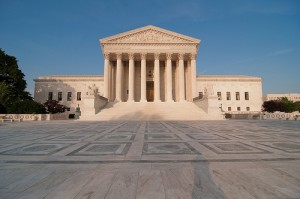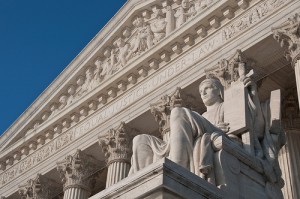The challengers to the redistricting of Maryland’s Sixth Congressional District just might win—if the Supreme Court actually decides their case.
In Benisek v. Lamone in 2011 the Maryland legislature needed to move about 10,000 voters out of the Sixth Congressional District to comply with “one-person one-vote.” It moved about 360,000 Marylanders out of the district and about 350,000 Marylanders in the district. As a result only 34 percent of voters were registered Republican versus 47 percent before redistricting.
Following the redistricting, Democrat John Delaney defeated the incumbent Republican by almost 21 percent. But two years later in 2014 Delaney almost lost his seat even though his challenger didn’t live in the district and raised less money. Two years after that, Republican Larry Hogan won the Sixth District, beating his rival by 14 percent.
A number of Sixth District Republicans sued alleging the state legislature “targeted them for vote dilution because of their past support for Republican candidates for public office, violating the First Amendment retaliation doctrine.”
In 2016, a three-judge court articulated a standard for when partisan gerrymandering violates the First Amendment. But two of the judges weren’t convinced that the challengers were able to demonstrate that but-for the partisan gerrymander, Republicans would have won and continued winning in the Sixth District. Continue reading




